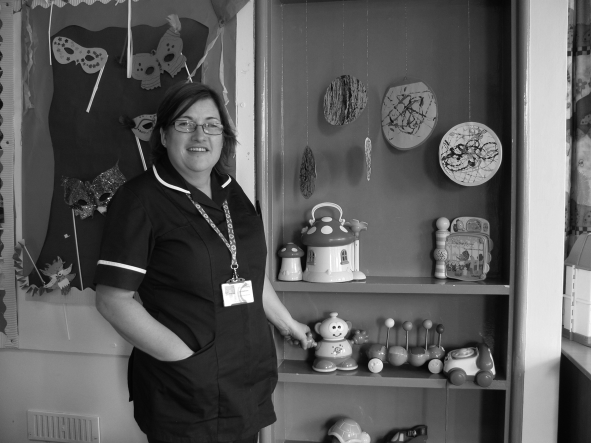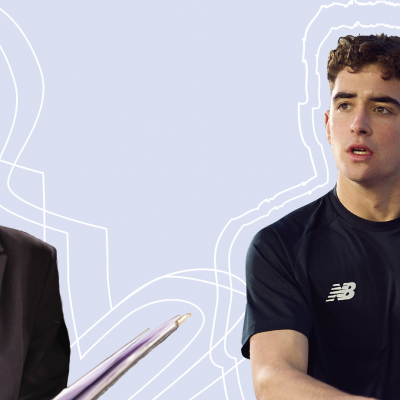Eliza Matthews is the children’s services lead at Benenden Hospital.
What range of health issues bring children to the hospital? We work with children from 0-18 years and treat ear, nose and throat problems, gastrointestinal problems, skin problems, lumps and bumps and general paediatric issues which could be anything from a heart murmur to a bed wetting issue.
What advice would you give to parents whose child is concerned or frightened about their visit? Be honest with your child about what will happen, in an age appropriate way. A young child will need a simple and short explanation but a teenager will want to know much more. At a pre-admission visit or telephone call the nurse will explain everything and give advice on the best way of speaking with your child.
How do you ensure your wards and treatments rooms are as welcoming and child friendly as possible? The children’s department is decorated with bright colours and staff wear tops with motifs on them which are designed to appeal to children. We have calming pictures of fish in our anaesthetic room and recovery areas. The corridors leading to the department are painted with animals. We have a big play room with lots of toys and a play leader.
Can a family member remain with the child throughout their treatment? For under 16s it is our policy that they must have a family member with them. We like a parent or carer to remain with the child or young person throughout their stay on the ward as they help us to look after the patient, because they know their child best. However, we cannot allow family members into theatre.
Is there any on-site accommodation for family members? Yes, we have our very own on-site hotel called Peek Lodge. If a child is coming in for surgery early in the morning a family could stay there the night before, or after the child has had their treatment, if they do not want to travel home straight away, although we often find families like to return to their own home.
Dr Russell Blanchard from StoneRock Dental Care
At what age should a child be taken to the dentist for the first time? Children can visit us any time after the first baby teeth come through. It is helpful to discuss any dietary concerns regarding the health of the teeth and provide reassurance during what can be an emotional and tiring teething time. Making the first visit as relaxed as possible is all important. I would encourage parents to bring their children with them when they are having a routine visit to make the dental environment become more familiar. A child’s curiosity will hopefully make for an impromptu ride in the chair and so the experience can begin on their terms.
How often should they come and see you? Any patient, child or adult, will be advised by their dentist when they believe would be the most suitable time for their next appointment. This is determined by the patient’s need. It depends on any concerns the dentist or parent might have, or if a certain stage of development is imminent that requires perhaps an extra helping hand with day to day cleaning or preventative advice that will help with the health of the child’s teeth. It may be that the appointments are made with an oral health educator, a hygiene therapist or the dentist dependent on the particular care required. Traditionally this is every six months, but sometimes more frequent visits are required. Certainly for children the time in between visits should be no more than 12 months.
How early can issues that will affect the development of a child’s adult teeth be picked up? As the development of the adult teeth happens unseen within the bone, as early as birth for the first molar teeth, it is difficult to detect visually developmental changes until the first adult teeth begin to appear, without taking radiographs. Taking of radiographs should be done in agreement with the parent and for the benefit of understanding and diagnosis. It is important to talk with parents regarding any family history and medical conditions that may affect tooth development as well as make sure necessary nutrients for tooth development are in the diet at good levels.
What range of treatments do you undertake in the practice? Our treatments for children include tooth brushing instruction and cleaning with our hygienist and therapist along with any necessary decay prevention treatments such as fissure sealants and fluoride varnish application where indicated. If any fillings are required the therapist and dentist can take care of those. If orthodontic treatment is required or there are concerns of tooth position we work alongside a specialist orthodontist who can address those needs.
How do you make the appointment as pleasant as possible for reluctant patients? Everyone is slightly anxious about a new place to visit and a new experience, but children are fantastic at finding excitement and curiosity in any situation. By allowing them to take their time, talking to them directly so they understand what is going to happen and showing them what’s going to happen before even getting them to sit in the chair you can usually find a happy acceptance. With a relaxed child, parent and dentist even the most reluctant of patients can succeed.
- Benenden Hospital www.benendenhospital.org.uk 01580240333
- StoneRock Dental Care www.stonerockdentalcare.com 01580752202
You may also like
Perfect Pitch
Mike Piercy, education consultant and former Head of The New Beacon, sings the praises of music in education What exactly is it that drives parents to make huge sacrifices by sending their children to independent schools? Different families have different...
‘It’s not fair!’
Mike Piercy, education consultant and former Head of The New Beacon, explains the importance of winning and losing with good grace The beefy second row lay prone, groaning, as the pack lumbered away. “Get up, Darling!” I cried. Opposition spectators...
Performance Power
Eastbourne College and Bede’s School discuss opportunities which give their students time to shine Director of Music at Eastbourne College, Dan Jordan, sings the praises of music at the school. It is 6.30pm, the night before a well-needed half-term holiday....

















